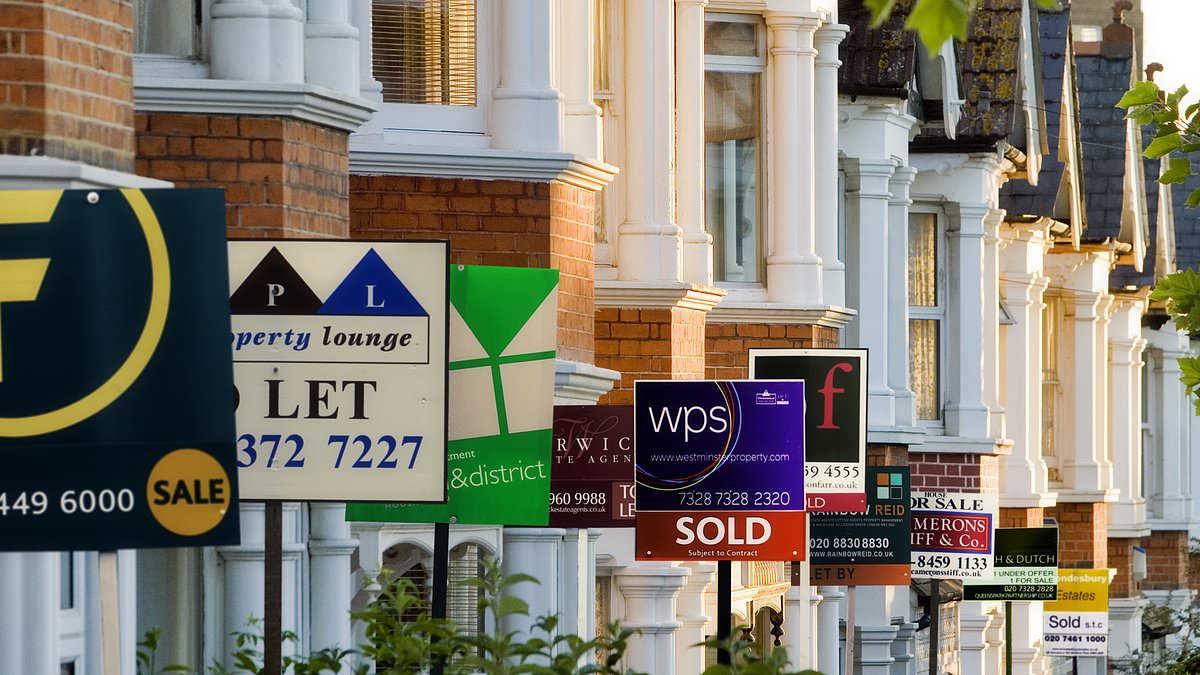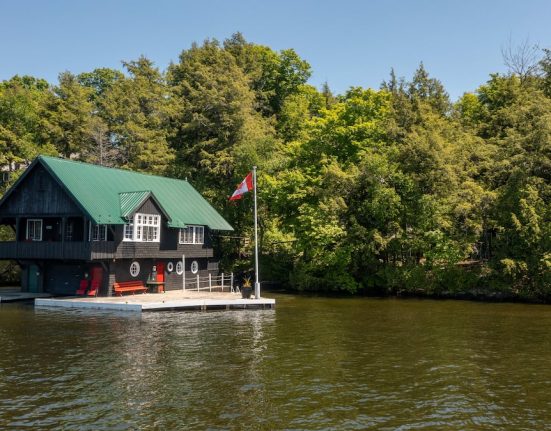- New data looks at property sales under nine different Chancellors since 1997
- Top ranked chancellor saw an average of 96,999 property sales every month
Have you ever wondered how the property market has performed under different Chancellors?
Well, exclusive research for This is Money and Mail Online Property reveal how vibrant the property market has been during the tenure of various Chancellors in the past 30 years.
In particular, the data looked at how many property transactions took place during their period of office.
Ahead of tomorrow’s Budget, the research by estate agents Jackson-Stops looked at property sales under nine Chancellors since 1997.
Seven of those nine Chancellors have been from the Conservative party, and yet it is one of the two Labour Chancellors that are included in the list who scored highest.
Ranked top is Gordon Brown who oversaw an average of 96,999 property sales every month.
By contrast, it is almost triple the volume of sales overseen by the current Chancellor Jeremy Hunt, whose average is 37,236.
However, Gordon Brown served during a period of extraordinary growth of the property market – particularly the mortgage market – between 2 May 1997 to 28 June 2007.
His tenure ended just before the start of the financial crisis, the height of which was in 2008 when hundreds of people a week were being evicted from their homes.
Alistair Darling was Chancellor during that turbulent financial period, remaining in office between 28 June 2007 and 11 May 2010.
The research looked at a range of factors, including monthly transaction volumes and average house price growth under the nine Chancellors.
Among the six Chancellors to have serviced for more than a 12-month period since 1997, Brown’s time in office saw the biggest positive effect on house prices based on monthly average prices.
House prices in England rose £1,764 per month on average during his tenure, ahead of Rishi Sunak on £1,101.
Both Alistair Darling and Hunt have both served more than a year as Chancellor and seen house prices fall during that time.
Darling saw average monthly values drop £526 compared to an average monthly drop of £465 for Hunt. The data adjusted all of the figures for inflation.
It means Darling is the worst performing Chancellor for homeowners in terms of value alone, according to the research.
He witnessed the largest fall in value of England’s housing market at 8 per cent, alongside a 15 per cent fall in property equity in his time in power during the 2008 financial crisis.
The only other Chancellor since 1995 to see average monthly house prices fall on their watch while mortgage debt held firm or rose is Kwasi Kwarteng.
Kwasi Kwarteng was responsible for the now infamous ‘mini-budget’ under Britain’s shortest-serving Prime Minister Liz Truss.
Meanwhile, the most successful Conservative candidate measured by house price growth and equity is George Osbourne.
He saw residential values grow more than three times fast – at 28 per cent – than mortgage debt – at 9 per cent.
This was boosted by the recovery following the financial crisis as well as the introduction of the Help to Buy scheme, aimed at helping those struggling to get on the property ladder.
During his 74 months as Chancellor, Osbourne saw £1.2trillion worth of property sales completed.
While Brown reached a higher level at £1.7trillion, he who served for nearly double the amount of time as Osbourne at 121 months.
Current prime minster Rishi Sunak was Chancellor for 28 months from February 2020 to July 2022.
He is unusual as the only Chancellor – other than George Osborne, who benefitted from the post-2008 recovery – who did better than his predecessor for increasing average house prices at 11 per cent and total equity at 14 per cent.
This was helped by the recovery in the property market following the pandemic and the Stamp Duty holiday.
Although Jeremy Hunt has presided over a period where house prices have fallen… it does give first-time buyers a fighting chance
Mark Harris, of mortgage broker SPF Private Clients, said: ‘It is no real surprise that Gordon Brown is considered to be homeowners’ favourite chancellor, given how property prices appreciated during his years at the helm.
‘The property market was booming, with nearly three times as many transactions per year as is the case now.
‘One could argue that Mr Brown benefited from flourishing economic conditions, which was quite the opposite for Alistair Darling whose tenure at Number 11 coincided with the global financial crisis, and resulting falling property prices.
‘Although Jeremy Hunt has presided over a period where house prices have fallen by £465 a month on average, a statistic that will not endear him to homeowners, it does give first-time buyers a fighting chance.
‘However the significant decline in transactions on his watch is a concern, which is why all eyes are on this week’s Budget to see whether the Chancellor can offer any meaningful assistance to boost the housing sector.’
Nick Leeming, of Jackson-Stops, said: ‘Diminishing terms have meant diminishing returns.
‘The data analysis points to a trend where the shorter the tenure of each Chancellor in power, the lower the value uptick in both property equity and house price appreciation.
‘Our analysis indicates that the nation’s Chancellors have got progressively worse at looking after the English housing market in the past three decades.
‘While Gordon Brown’s decade as Chancellor of the Exchequer set several records, it was Alistair Darling who witnessed the largest fall in value of England’s housing market, presiding over the Financial Crash.
‘It is after that period that we start to see Chancellors tactfully pull on levers to help stimulate economic and housing growth, but not withstanding their own round of criticism in doing so.
‘The legacy of both Help to Buy and the stamp duty holiday created market peaks, and a steep increase in property prices. In June 2021, for instance, we saw house price growth reach 13.4 per cent – its highest for 17 years.’
He added: ‘According to our data, Jeremey Hunt’s time in office has produced the lowest number of average monthly property sales in the past 30 years, since records began.
‘March’s Budget will be a significant time for anyone planning to buy or sell a home.
‘It will also lay the foundations of the Conservative’s tactics to win consumer hearts and minds ahead of Autumn’s General Election. The industry will be watching with huge anticipation.’







